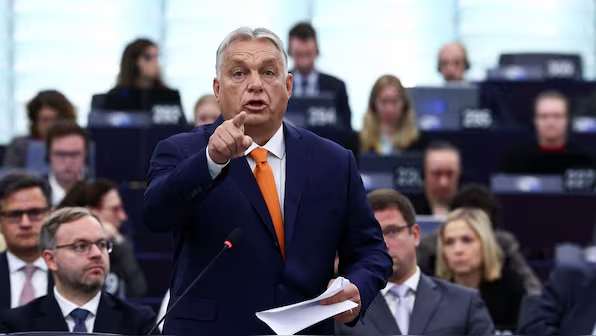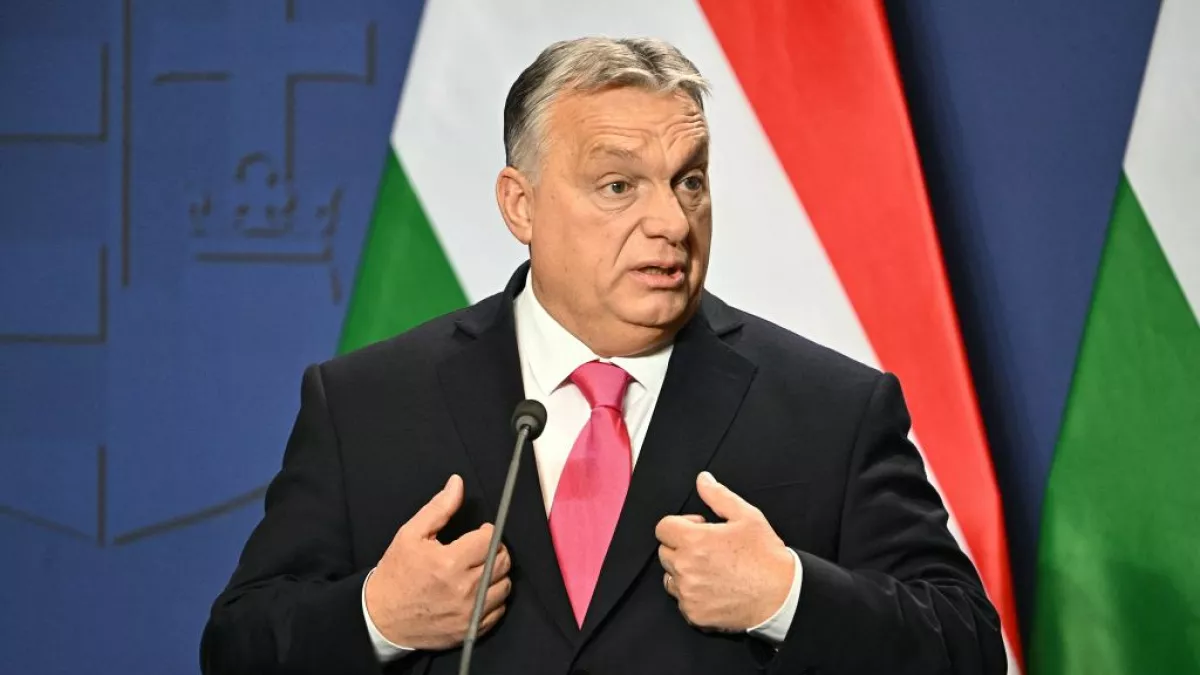Hungarian PM to invite Netanyahu to Budapest despite the recent controversial decision by the International Criminal Court (ICC). This move has ignited a global debate over international law, diplomacy, and political alliances.
Viktor Orbán’s stance underscores Hungary’s defiance of the ICC and highlights the intricate geopolitical dynamics between Israel and its allies amidst the ongoing Gaza conflict. The decision has significant ramifications for global diplomacy, accountability, and humanitarian concerns.
Orbán’s Defiance of the ICC
In a bold declaration, Hungarian Prime Minister Viktor Orbán dismissed the ICC’s arrest warrant for Israeli Prime Minister Benjamin Netanyahu, framing it as politically motivated interference in a complex conflict.
During a state radio broadcast, Orbán accused the ICC of overstepping its mandate, suggesting that the court’s actions undermine rather than uphold international law. He argued that issuing an arrest warrant amidst an active conflict serves only to escalate tensions and jeopardize efforts for a peaceful resolution.
Orbán’s decision to invite Netanyahu to Hungary signals a strong rejection of the ICC’s authority, at least within the context of Israeli-Hungarian relations. This invitation is not merely a diplomatic gesture but a clear message to the international community about Hungary’s stance on the Israel-Gaza conflict.
It aligns with Orbán’s broader foreign policy approach, characterized by skepticism towards international institutions and a preference for bilateral relationships over multilateral accountability mechanisms.
Read : Hungary: An Enchanting Journey Through the Heart of Central Europe
Critics argue that Orbán’s defiance undermines the credibility of international law and sets a dangerous precedent for selective compliance. Supporters, however, view it as a necessary stand against what they perceive as biased and politically motivated interventions by international bodies.
Read : List of the Countries that Reads the Most : India Tops
Hungary’s position reflects a broader geopolitical divide, where support for Israel is a key component of certain countries’ foreign policies, often at the expense of adherence to international norms.
The ICC’s Charges and Global Reaction
The ICC’s arrest warrant for Netanyahu, along with former Defense Minister Yoav Gallant and Hamas’ military chief, marks a significant development in the international response to the Gaza conflict. The charges include allegations of using starvation as a method of warfare by restricting humanitarian aid and intentionally targeting civilians.
These are serious accusations that, if proven, constitute grave violations of international humanitarian law. Israel has vehemently denied the charges, arguing that its military actions are aimed at defending its citizens from Hamas attacks.

The decision to issue arrest warrants for leaders on both sides of the conflict has sparked mixed reactions globally. Many countries and human rights organizations have welcomed the ICC’s move, viewing it as a step towards accountability and justice for victims of the conflict. Others, however, see it as an overreach that complicates diplomatic efforts to resolve the conflict.
Canadian Prime Minister Justin Trudeau’s statement that Canada would abide by the ICC warrant highlights the divergent responses among Western nations. While some countries, like Canada, emphasize the importance of upholding international law, others, like Hungary, prioritize geopolitical alliances and national interests.
This divergence reflects broader tensions within the international community over how to balance justice and diplomacy in conflict situations.
The ICC’s lack of enforcement power further complicates the situation. Member countries are legally obligated to arrest individuals facing ICC warrants if they enter their territory, but compliance is often influenced by political considerations.
Hungary’s refusal to comply with the warrant underscores the limitations of the ICC’s authority and the challenges of enforcing international law in a politically fragmented world.
Geopolitical Implications and the Future of International Law
Orbán’s invitation to Netanyahu has significant geopolitical implications. It reinforces the close relationship between Hungary and Israel, a relationship that has strengthened in recent years through economic cooperation, shared security interests, and mutual support in international forums.
By defying the ICC, Hungary is positioning itself as a staunch ally of Israel, willing to prioritize bilateral ties over adherence to international norms.

This stance also reflects broader trends in international politics, where the authority of multilateral institutions is increasingly challenged by nationalist and populist leaders. Orbán’s criticism of the ICC as a politically motivated entity resonates with a growing skepticism towards international organizations among certain segments of the global population.
This skepticism is fueled by perceptions of bias and double standards in the application of international law, particularly when it comes to conflicts involving Western allies.
The future of international law and accountability mechanisms depends, in part, on how the international community responds to cases like this. If countries continue to defy ICC warrants with impunity, it could undermine the court’s credibility and weaken the broader system of international justice.
On the other hand, if the ICC’s actions lead to meaningful accountability and contribute to a resolution of the conflict, it could strengthen the court’s legitimacy and reinforce the principle that no one is above the law.

The Gaza conflict, which has resulted in a staggering death toll of over 44,000 according to local health authorities, highlights the urgent need for accountability and justice. The majority of those killed are reported to be women and children, raising serious concerns about the conduct of the war and the protection of civilians.
The ICC’s decision to issue arrest warrants is a response to these concerns, but its effectiveness depends on the willingness of the international community to support and enforce its rulings.
Viktor Orbán’s decision to invite Benjamin Netanyahu to Hungary despite the ICC arrest warrant is a bold and controversial move that reflects the complex interplay of politics, diplomacy, and international law.
It underscores Hungary’s defiance of the ICC and highlights the broader challenges facing international accountability mechanisms in a politically fragmented world. As the Gaza conflict continues, the international community faces a difficult task: balancing the pursuit of justice with the need for diplomatic solutions.
The ICC’s arrest warrants have sparked a global debate over the role of international law in conflict resolution. Hungary’s rejection of the warrant raises important questions about the future of international justice and the ability of multilateral institutions to hold powerful leaders accountable.
The coming months will be critical in determining whether the ICC’s actions lead to meaningful accountability or further erode the credibility of international law.

